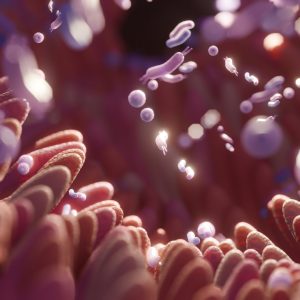 There’s growing concern among microbiome researchers that some of our most beneficial microbes are quietly disappearing—lost to modern lifestyles, medications and dietary shifts. This emerging concept, sometimes called the microbial extinction hypothesis, suggests we may be witnessing a long-term erosion of microbial diversity with far-reaching consequences for human health.
There’s growing concern among microbiome researchers that some of our most beneficial microbes are quietly disappearing—lost to modern lifestyles, medications and dietary shifts. This emerging concept, sometimes called the microbial extinction hypothesis, suggests we may be witnessing a long-term erosion of microbial diversity with far-reaching consequences for human health.
From coexistence to collapse
For most of human history, we coexisted with a rich, varied ecosystem of gut microbes—transmitted through birth, close contact with soil, animals and each other. These microbes did far more than aid digestion. They helped train our immune system, synthesise vitamins, influence mood and protect us from pathogens. In many ways, they were an extension of ourselves.
But over the last century, that relationship has shifted. Widespread antibiotic use, caesarean births, reduced breastfeeding, hyper-hygienic environments, ultra-processed diets and a sharp decline in contact with nature have all contributed to a gradual loss of microbial partners—which will not return once lost.
Not just imbalance—irreversible loss
While dysbiosis—a disrupted microbiome—can often be addressed with the right support, the microbial extinction hypothesis points to a deeper issue: that some ancestral species may have disappeared altogether from modern human populations.
Studies comparing the gut microbiomes of industrialised and traditional societies reveal stark differences: lower overall diversity, fewer butyrate producers and near-complete absence of certain fibre-fermenting organisms. These aren’t small shifts—they reflect the potential collapse of long-standing microbial partnerships that co-evolved with us over millennia.
And the process isn’t over. Many of us are still losing microbial diversity—strain by strain, species by species—through everyday factors like poor diet, unnecessary medications, environmental disconnection and chronic stress. This isn’t just a historical problem. It is continuing today in real time.
Why it matters
Loss of microbial diversity isn’t just an academic concept—it’s been linked to a range of modern health issues:
- immune dysregulation – higher rates of allergies, asthma and autoimmune conditions
- inflammatory disease – increased susceptibility to IBD, metabolic syndrome and chronic low-grade inflammation
- mood and neurological health – disruption of microbial metabolites that affect the gut-brain axis
- metabolic resilience – reduced capacity to produce short-chain fatty acids, polyamines and vitamins.
A less diverse microbiota is also more vulnerable to opportunistic pathogens and slower to recover after stress, medication or illness.
Can we bring them back?
While we have to accept that some species may be lost permanently, there’s still a lot we can do to support the richness and resilience of the microbiota we have.
Diet is a powerful tool. Increasing fibre and polyphenol intake, incorporating prebiotic fibres, eating a wide variety of plant foods and reducing ultra-processed foods all help nourish beneficial microbes. Fermented foods, while not capable of long-term colonisation, have been associated with increased microbial diversity over time. Spending regular time in nature—bushwalking, swimming in natural water holes or simply lying in the grass—along with animal contact and the careful use of medications when appropriate, can all help support microbial diversity over time.
Faecal microbiota transplantation (FMT)—a therapy that introduces a broad spectrum of microbes from a healthy donor—has shown potential in some clinical settings. While it’s not a first-line intervention, it suggests that rewilding the microbiome, in some form, may be possible in the future.
The bottom line
The microbial extinction hypothesis reminds us that the gut isn’t just a digestive organ—it’s an ecosystem. And like any ecosystem, it can suffer when diversity declines. But it’s not only the ecosystem that suffers—when a critical symbiosis is disrupted, the health of the whole system is affected.
Protecting and supporting internal biodiversity may be one of the most foundational things we can do for long-term health. At Vive Health, our in-store qualified practitioners can offer general guidance to help you support your microbiome through diet, lifestyle and, where appropriate, supplementation. For more complex presentations or individualised care, you can book an appointment with one of our clinical team at viveclinic.com.au.
Article written by
Peter Christinson
BHSc (Nutritional and Dietetic Medicine)
Retail and Clinic Manager
